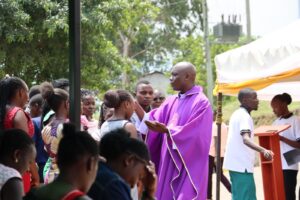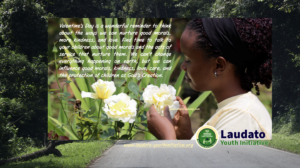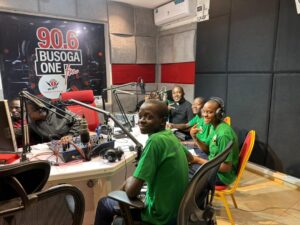By Laudato Voices. Following Pope Leo XIV’s Warning on AI and Intellectual Development, we hear the bells ring again after Pope Francis’ Antiqua et Nova (January 28, 2025) a Papal Call to Action towards Artificial Intelligence
On Friday, June 20, 2025, Pope Leo XIV issued a cautionary message during a Vatican‑hosted AI and ethics conference, warning that artificial intelligence could negatively affect children’s intellectual, neurological, and spiritual development (Associated Press, 2025). He stressed that mere access to data should not be equated with true intelligence, and urged that AI must be governed by ethical standards that protect human dignity and foster authentic wisdom (Associated Press, 2025; Politico, 2025). You may agree with me young people’s intellectual development is usually at early stage. Much of what needs to be done is expose them to creative activities and values that develop their mental capability. Moreover, the traditional African value system embraces the fact that children are also worthy of the right to human dignity and that right being respected. It is for this reason that children are taught how to build human interactions in socialising, greet people of different age with a view to building relationships that form character and values. What will happen if children will no longer be required to think around the box and generate ideas, solve problems but just type and get away out. This should also be looked at the family and school level, the environment where critical thinking, human interactions, wisdom and vlaues are cultivated through human interactions.
Let us look at the two Foundational Vatican Documents that have comeup to give guidance
- Antiqua et Nova (January 28, 2025), a doctrinal note by the Dicasteries for the Doctrine of the Faith and for Culture and Education, emphasizes that AI must only complement human intelligence. It warns that unsupervised AI in education can erode critical thinking, deskill learners, and weaken their relational capacities (Vatican Dicasteries, 2025; Bishop Tighe, 2025).
- Pope Leo XIV’s June 2025 address reiterated that while AI is “an exceptional tool,” its use must always respect human dignity, requiring responsibility and discernment to ensure it serves the common good (Vatican News, 2025).
With those in mind the thinking now is about the risks to Youth and Children which will come about because of Disconnected Realities
Antiqua et Nova highlights specific risks:
- Dependency on ready-made content leading to diminished critical thought.
- The potential erosion of relational and reflective capacities.
- Deskilling of young learners when AI replaces rather than supports human effort (Vatican Dicasteries, 2025; Bishop Tighe, 2025). Pope Leo XIV echoed these concerns, warning of an unmooring of young minds from reality without proper guidance (Associated Press, 2025; Politico, 2025).
This challenges each one of us to think of ways we can offer guidance and for us as Laudato Voice’s we think of a Four‑Pillar Response
Family involvement and Educational Empowerment:
- Families must wisely discern was and the time when children can be introduced to the use of Artificial Intelligence
- Families could also guide how and what children could do with Ai by offering children enough time and avoid replacing technology as a means to keep children busy.
- Schools like wise need to be Conducting workshops on AI literacy: what AI is (and isn’t).
- Encouraging reflective use rather than dependence. Like many of us agree it is a good tool but MUST be used appropriately and for children I think its more critical that they be guided on how, when and what to do with Artificial Intellinegence.
- As Laudato Youth our role has always been mobilizing young people to integrate faith in issues that affect God’s creation and build deeper relationship with the creator now we believe Infusing sessions with Catholic social teaching on human dignity and the stewardship of technology we could go a long way.
For young people its about peer formation now we need Peer‑Led Advocacy
- Training youth ambassadors to host dialogues and produce awareness campaigns.
- Collaborating with educators to establish ethical AI guidelines for youth environments even in schools. We know Labs all have rules we need to have such practical guidelines for young people be it in homes or institutions of learning.
We are living in the world where human Relational Reconnection are increasingly becoming wider bridges to Cross andso we need to mobelize for Initiatives that encourage encounter and connections for human development and social connections. We see that alot in our Laudato Si Clubs where young people do better when exposed to activities that foster human and social connections, community service etc:
- Our stand in Laudato Si Clubs will be encouraging digital fasts for nature walks as for groups, screen‑free days for green days, and community service events for connecting to people in need like the sick, elderly, plastic waste clean up and tree planting in communities.
- Our Laudato Si Clubs are encouraging creative, non-digital expression—writing, art, and music grounded in reflection on nature, social and spiritual well being of young people.
Our call is to engage is a call of encounter where Policy & Ethical Dialogue become a priority just as mother church is:
- Pushing for ethical oversight in AI’s educational development (Vatican News, 2025).
- We believe in youth engagement and our role must be more in ensuring youth voices are heard in consultations shaping school and Church AI policies.
We see a Synergy with Papal Insight
Pope Leo XIV’s description of AI as “an exceptional tool” reflects trust in humanity’s capacity and calling the youth in particular to wield it responsibly (Vatican News, 2025). The Laudato Youth Initiative is stepping forward to align with this vision by equipping young people with critical tools and platforms to shape a tech‑augmented future anchored in faith, dignity, ethics, and reality.
It is a journey but from now on our Goals and Benchmarks with Laudato Youth aims to:
- Launch AI literacy programs in at least in all our Laudatoo Si Clubs in schools, dioceses, communities that are embracing technology.
- We will soon roll out a “Reality & Reflection” digital campaign featuring voices of our media youth creators.
- We hope to Host a Youth–Faith–Tech Symposium for Uganda to draft AI‑use guidelines for schools and parish youth programs.
That is our response to Pope Leo XIV’s call and the church grounded in Antiqua et Nova, Laudato Youth Initiative is mobilizing young voices to cultivate critical thinking, reinforce community ties, and influence ethical AI usage. In doing so, they aim to uphold human dignity and ensure AI serves as a tool—not a replacement—for authentic intellectual and spiritual growth.
References
Associated Press. (2025, June 20). Pope Leo XIV flags AI impact on kids’ intellectual and spiritual development. AP News.
Bishop Tighe. (2025, January). “Antiqua et Nova” offers guidance on ethical development of AI. Vatican News.
Politico. (2025, June 20). Pope Leo XIV warns of the dangers of AI on youth.
Vatican Dicasteries for the Doctrine of the Faith & Culture and Education. (2025, January 28). Antiqua et Nova: Nota sul rapporto tra intelligenza artificiale e intelligenza umana.
Vatican News. (2025, June). Pope Leo XIV says AI is an exceptional tool—but must respect human dignity.
Share with us your views..













